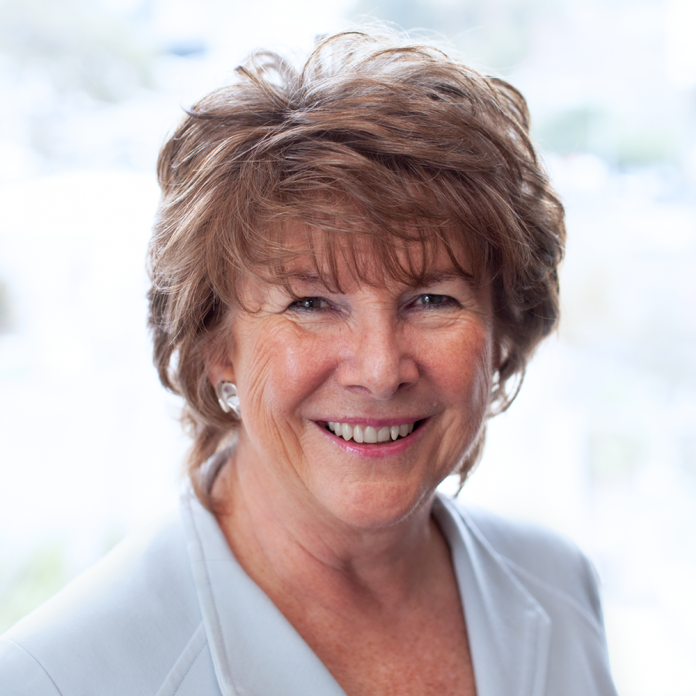Janet Hailes Michelmore, CEO at Jean Hailes for Women’s Health, talks to Retail Pharmacy about the organisation, the importance of raising awareness about women’s health in community pharmacy and empowering women to take a proactive approach to their healthcare.
What is the mission/vision of the organisation?
The founders who set up the organisation were all incredibly passionate about women’s health. There are gynaecologists, endocrinologists and medical researchers … Their dedication and commitment to women’s health is extraordinary. It’s that wealth of knowledge, that commitment, which underpins the foundations of the organisation, which really is extraordinary.

In terms of its vision and mission, this hasn’t changed. It’s about keeping women and gender-diverse people well throughout their lives. It’s a focus on prevention and early detection. It’s a focus on giving women the confidence to manage their health and the knowledge to do so. To be confident, you must have the knowledge and you also must have the confidence to talk to your health professional in a way that you know how to get the best out of your medical consult or your health consult. And we knew that the best way to do this was to make sure we had a clinical service, comprehensive education programs [and that] we underpinned everything with rigorous research.
Why did the organisation choose to specifically focus on women’s health? Why is it important to consider women’s health as separate from men’s health?
I think this is because Mum was an expert in women’s health and because she was a leader and a pioneer in the field. The organisation really was set up to continue her work. Her expertise, her knowledge, and those of her colleagues were in women’s health. Having said that, we work very closely with men’s health organisations, too, because I have a view that, actually, it’s about everybody’s health. We just happen to be the experts, and we happen to have specialist knowledge in women’s health. But Men’s Health Australia is a close collaborator, and we can cross, we can collaborate. We can share knowledge and information.
According to the website, in 2016, the federal government formally announced Jean Hailes as the national digital gateway for women’s health and wellbeing. Can you tell us more about this? What was involved in the process?
It came about after numerous discussions with the government at the time, and that was about having a central spot for [information]. We’re not the experts in everything, but there are key areas that we have specialist knowledge in. And then for those areas we don’t specialise in, we have referral pathways – for instance, the Continence Foundation, the National Heart Foundation, Diabetes Australia. However, saying that, we do sections on our website with some starting information about those other areas that we’re not specialists in, along with detailing where women should go for more detailed information. It’s about providing women with a roadmap of where to find information.
Interestingly, about 1700 external organisations link to our website, and our website material is used on government websites. So, it works as a sort of central hub for the community. We have an aspiration or a goal that Australians when they think of women’s health, they think of Jean Hailes. It’s a work in progress but it’s about providing people with the comfort that there’s this spot that they can [come to for information] to start the [healthcare] process.
Why is it important for women to be reminded that it’s OK to put themselves first in terms of healthcare and well-being?
Because women tend to think they’re not as important as other members of their community, their families, etc. And I’m a prime example of that. Taking time out to look after yourself is not selfish. It does take time to have check-ups and [health] screening done, but it’s worth it. That’s what our big message is: taking time for yourself.
How can pharmacies best raise awareness for women’s health and support their female customers? How can pharmacies best utilise Jean Hailes for Women’s Health and its resources when supporting women’s health?
One of the first things is [when women] come in with a [script] for some medication for another member of the family, ask about how that woman is going herself. She might have a sick child at home but it’s also important to tap into how she herself is feeling. Women tend not to be very good at looking after themselves or taking the time out for themselves.
The other way is if women are coming in for a prescription, particularly one related to hormones, or bleeding, or some very specific women’s health condition, the pharmacist could point them to the Jean Hailes website for more information. It’s understanding the resources that are available for women that the pharmacist can refer them to.
One of the things that’s invaluable on our website is access to a whole lot of factsheets in 10 or 12 community languages. They don’t provide all the information, but they give people a [basic] understanding, and a quick look at what [their condition] is all about.
Knowing that those resources are there is really important.
There’s an ability for pharmacists to use our website themselves. We have a variety of learning opportunities on the site. We’ve got podcasts and videos. We’ve got ‘Ask the Expert’, so pharmacists can get some very good information very quickly about things that they can use as their own professional development. But similarly, being able to refer women to the Jean Hailes website, or in fact promote Women’s Health Week, is gold in terms of supporting women.
It’s important for pharmacists to actively show their support for women in their communities by seizing every chance to open a conversation about women’s health and add extra value to the interaction with the client by providing them with information and resources.
This interview was originally published in the September issue of Retail Pharmacy magazine. To read the feature in full as it appears in the magazine, visit: retailpharmacymagazine.com.au/magazine/retail-pharmacy-september-2022








